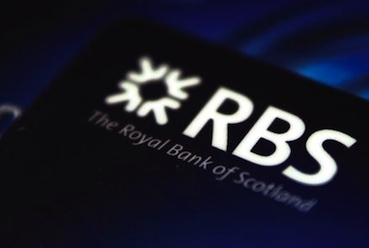The Financial Services Authority has fined The Royal Bank of Scotland plc (RBS) £87.5 million for misconduct relating to the London Interbank Offered Rate (LIBOR).
An additional figure, estimated to be in the region of £300m, will be paid to US regulators and the US Department of Justice producing a total punishment for the bank of nearly £400m.
RBS, which is 81 per cent owned by the UK taxpayer following a government rescue, qualified for a 30 per cent discount on the FSA fine for early settlement. Without the discount the fine would have been £125m.
{desktop}{/desktop}{mobile}{/mobile}
Chancellor Gordon Brown says that he will make every effort to ensure that the taxpayer-owned bank, rather than taxpayers, pay the fines. Bonuses are likely to be a target. RBS says 21 employees have left the bank since the wrongdoing was discovered.
The FSA says that RBS's breaches of the FSA's requirements included a number of issues, involved a number of employees and occurred over a number of years. The individuals involved in the misconduct were located in the UK, Japan, Singapore, and the US. Between January 2006 and November 2010 the misconduct included:
· RBS making Japanese yen (JPY) and Swiss franc (CHF) LIBOR submissions that took into account its derivatives trading positions.
· RBS allowing derivatives traders to act as substitute submitters and make JPY LIBOR submissions that took into account its derivatives trading positions.
· RBS making JPY, CHF and US dollar (USD) LIBOR submissions that took into account the profit and loss (P&L) of its money market trading books.
· RBS derivatives traders colluding with other LIBOR panel banks and interdealer broker firms to influence the JPY LIBOR submissions made by other panel banks, including one derivatives trader entering into "wash trades" (i.e. risk free trades that cancelled each other out and for which there was no legitimate commercial rationale) in order to make corrupt brokerage payments to one broker firm to garner influence. The derivatives trader used this influence to get the broker firm to try to change other panel banks' JPY LIBOR submissions.
· RBS derivatives and money market traders colluding with individuals at other panel banks and interdealer broker firms who sought to influence RBS' JPY and CHF LIBOR submissions.
The misconduct was widespread, said the FSA. At least 219 requests for inappropriate submissions were documented – an unquantifiable number of oral requests, which by their nature would not be documented, were also made. At least 21 individuals including derivatives and money market traders and at least one manager were involved in the inappropriate conduct.
RBS failed to identify and manage the risks of inappropriate submissions, says the FSA. RBS established a business model that sat derivatives traders next to LIBOR submitters and encouraged the two groups to communicate without restriction despite the risk that derivatives traders would seek to influence RBS' LIBOR submissions.
RBS did not have any LIBOR-related systems and controls in place until March 2011, failed to adequately address the risk that derivatives traders would seek to influence RBS's LIBOR submissions until June 2011, and failed to adequately address the risk that money market traders would take into account the impact of LIBOR on the profitability of transactions in their money market books, until March 2012.
In response to a specific request by the FSA as a result of its enquiries into LIBOR, RBS attested to the FSA in March 2011 that its LIBOR related systems and controls were adequate. This was inaccurate as RBS' systems and controls were inadequate.
Tracey McDermott, director of enforcement and financial crime, said: "The integrity of benchmark reference rates such as LIBOR is of fundamental importance to both UK and international financial markets. The findings set out in our notice today demonstrate a failure by RBS to take that wider context into account. The failures at RBS were all the more serious because of the attempts not only to influence the submissions of RBS but also of other panel banks and the use of interdealer brokers to do this."
"The extent and nature of the misconduct relating to LIBOR has cast a shadow on the reputation of this industry and we expect firms to take steps to ensure that this can never happen again. This is the third penalty we have imposed in relation to LIBOR related misconduct. The size and scale of our continuing investigations remains significant." The FSA continues to pursue a number of other significant cross-border investigations in relation to LIBOR and other benchmark rates. On 27 June 2012 the FSA fined Barclays Bank plc £59.5 million for misconduct relating to LIBOR and EURIBOR and on 19 December 2012 the FSA fined UBS AG £160 million for significant failings in relation to LIBOR and EURIBOR.
The Final Notice for RBS can be found on the FSA website.

